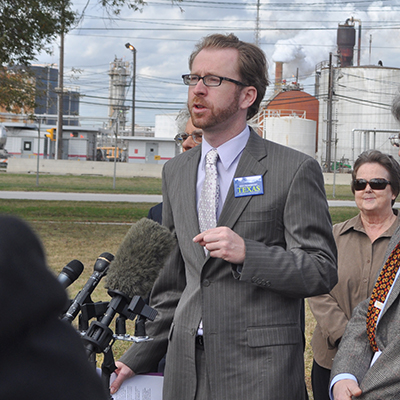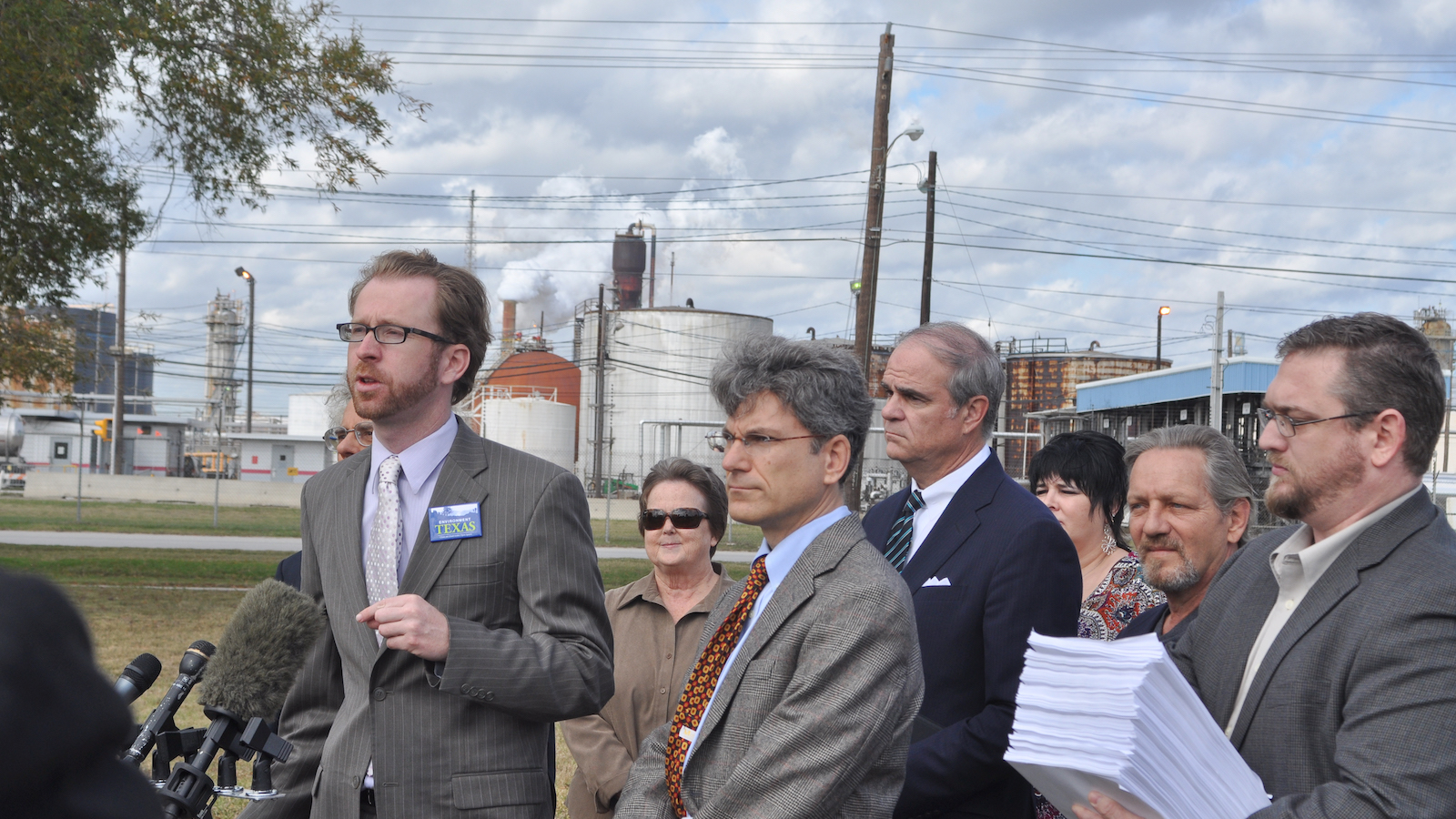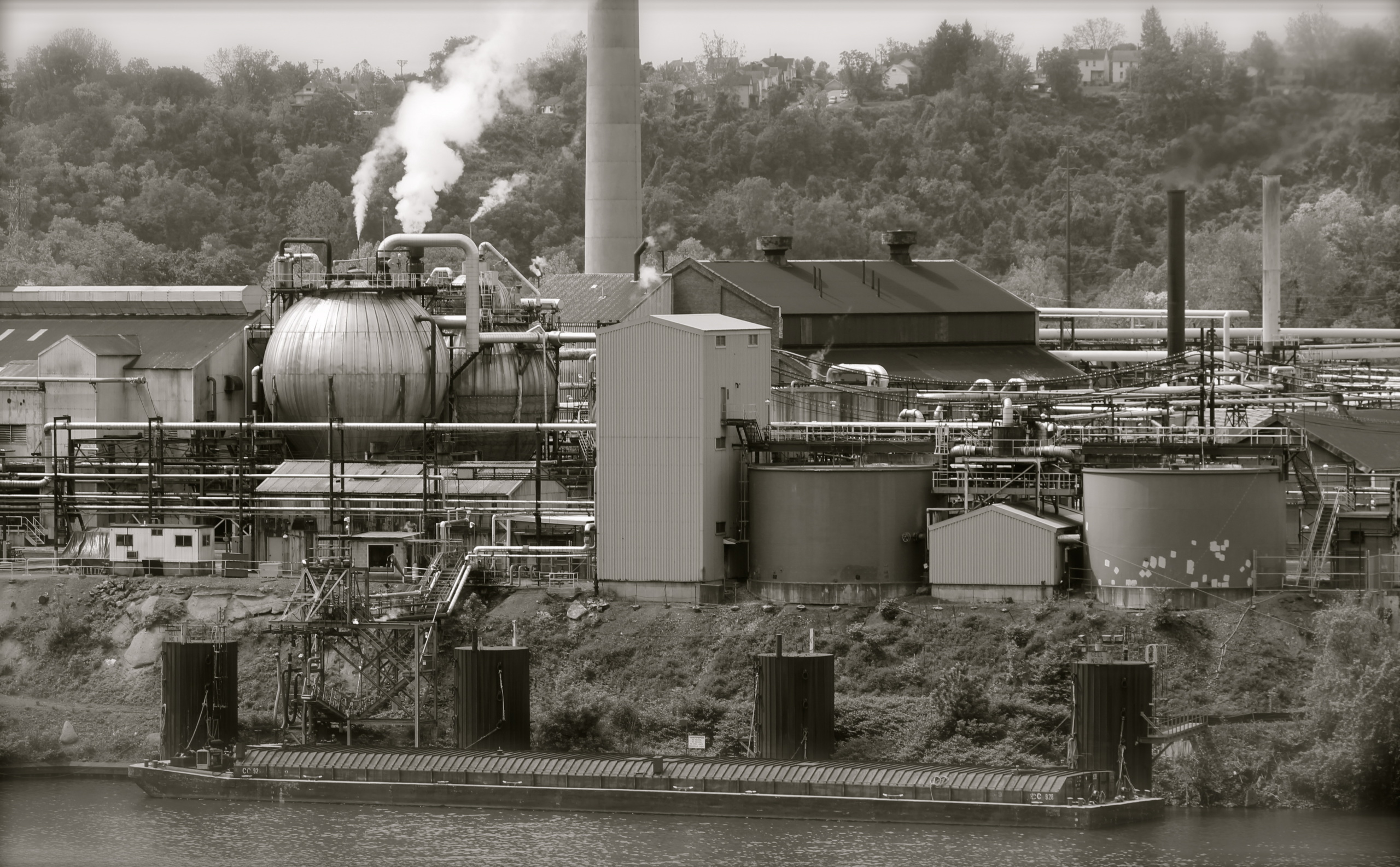
ExxonMobil working to gut citizens’ rights to hold polluters accountable

ExxonMobil is working to overturn a court ruling holding the company accountable for thousands of admitted violations of the federal Clean Air Act. Its endless appeals in this case give lie to Exxon’s public efforts to paint itself as a company concerned about its impacts on the climate, the environment, and public health.
Even worse, Exxon’s strategy for evading responsibility, in one of the largest and longest-running citizen enforcement suits ever brought under the Clean Air Act, will have impacts far wider than the company’s own bottom line: Exxon wants to undermine the rights of all citizens to hold polluters and other corporate wrong-doers accountable in federal court.
On August 30, in a 2-1 decision, the federal Fifth Circuit Court of Appeals ruled against ExxonMobil Corporation for the third time in this case and upheld a record $14.25 million civil penalty.
The case centers on thousands of so-called “upset” events at Exxon’s Baytown, Texas, petrochemical complex, which Exxon has called “the largest manufacturing facility in the country.” From 2005 through 2013, Exxon illegally released millions of pounds of sulfur dioxide, ozone-forming chemicals and toxic and carcinogenic pollutants into surrounding neighborhoods, where members of plaintiffs Environment Texas and Sierra Club live. The trial judge levied this unprecedented fine to punish the company for 3,651 instances of illegal flaring and other unauthorized releases of pollutants – more than one per day, on average, for eight solid years.
In ExxonMobil’s appeal, the company tried to convince the 5th Circuit to deviate from decades of settled case law prescribing the circumstances under which citizens have legal standing to bring environmental enforcement suits. If ultimately successful (the company has already announced it will ask the entire en banc panel of 5th Circuit judges to rehear the case, and there is no telling whether it will ultimately seek relief from the U.S. Supreme Court), Exxon would raise the bar for filing a case so high that it could eviscerate the ability of citizens to hold violators of the Clean Air Act – and other environmental and consumer protection laws – accountable.
Citizen Suits
The Clean Air Act, the Clean Water Act and other federal environmental laws established the right of citizens to sue companies for violations when the government fails to do so. These citizen suits have been a powerful tool for community groups to reduce pollution, hold violators accountable and spur government regulators to do their jobs. According to an analysis by Bloomberg, between 2016 and 2021, 617 different citizen suits were filed in federal courts.
Citizen suits don’t seek personal compensation for illness or property damage, as in tort law (where, for example, a plaintiff would need to prove an illness was caused by a company’s pollution). Instead, to establish legal standing to seek civil penalties (paid to the government) and cleanup orders, plaintiffs must simply show they have a personal stake in the outcome of the controversy, by establishing that they have suffered injuries that are “fairly traceable” to the defendant’s illegal conduct. Courts across the country have held that evidence showing that the types of injuries plaintiffs suffer (such as experiencing noxious odors or respiratory symptoms) can be caused by the pollutants illegally discharged into their neighborhoods is sufficient to meet this “traceability” standard. As the 5th Circuit itself has ruled many times, plaintiffs in these cases “need not ‘connect the exact time of their injuries with the exact time of an alleged violation’” in order to show they have a tangible, personal interest in the outcome.
Over the last 14 years, Environment Texas and the Sierra Club have successfully settled citizen suits against Shell, Chevron Phillips, and Petrobras for similar clean air violations, reducing pollution in Harris County by more than one million pounds a year over the period of these settlement agreements, and directing more than $10 million in penalty payments toward local environmental and public health projects, including an environmental health program at the Baylor College of Medicine, reducing harmful diesel emissions from buses, and installing solar panels on area schools.
Exxon’s argument
The 5th Circuit “determined that the plaintiffs ‘easily’ met their burden of proving injury for each alleged violation because ‘throughout the claims period, [they] regularly saw flares, smoke, and haze coming from the complex; smelled chemical odors; suffered from allergy-like or respiratory problems; feared for their health; refrained from outdoor activities; or moved away.’”
Exxon, however, argues the Court should conduct a separate standing inquiry for each of its 3,651 violations and require the plaintiffs to connect their injuries to specific unlawful discharges.
This is an unachievable standard, in that it would require untrained community members to be able to distinguish between legal and illegal emissions of a particular pollutant, to be awake at all hours when violations occur, and to rigorously keep years’ worth of written records of their experiences.
It is also a legally invalid standard: people who live next door to the Baytown complex always have an interest in ExxonMobil’s consistent compliance with its emission limits. They don’t know whether they’ll be outside, taking a child to school, at the exact time Exxon next spews carcinogens onto their street, but they surely have an ongoing, personal stake in that not ever happening. That interest is all that decades of judicial decisions have required of citizen plaintiffs.
Accordingly, the 5th Circuit found that “Even Exxon realizes that its position is an outlier. It acknowledged at oral argument…that it is enough that the defendant’s conduct provide ‘at least some contribution’ to the plaintiff’s injury.”
Exxon is essentially seeking a “get out of jail free” card, trying to convince the courts that – even though it indisputably committed thousands of violations of federal law – the very citizens who have the greatest interest in Exxon’s compliance should not have the legal standing to enforce the Clean Air Act as Congress intended them to do.
After 13 years of litigation – including a three-week trial, two appeals, two remands of the case to the trial court for additional findings, and three appellate decisions against them – it is long past time for Exxon to accept responsibility and finally pay what it owes to the public for years of illegal, toxic pollution.
The Court of Appeals’ decision thoroughly discredits Exxon’s attempts to worm out of its responsibility. The decision affirms that citizens can hold even the biggest, deepest-pocketed polluters to account for violating environmental laws.
Exxon’s goal is clearly to make it hard or impossible for affected citizens to hold big polluters accountable, for even admitted violations, in cases where the government drops the ball. Only one of the six appellate judges to have sat on the two appeals in this case has sided with Exxon. That judge, Andrew Oldham, in his dissent from the latest decision, wrote that “there’s no adequate contention, backed by trial-appropriate evidence, that any of plaintiffs’ members took reasonable preventive measures to avoid Exxon’s violations.”
First, this is patently false: two stopped exercising outdoors, one moved his family two miles further away from the facility, another had to abandon Baytown entirely because of her severe breathing problems. But more distressing to consider: What are Baytown residents and workers expected to do before they have the right to sue for clean air? Wear gas masks everywhere to avoid Exxon’s illegal pollution? Build air-tight domes over their homes? This is victim-blaming at its most blatant.
This case is important not just because Exxon is the largest polluter in Harris County and someone needs to hold it accountable (the TCEQ and Attorney General are clearly unwilling). It is important also because Exxon is using its limitless resources to re-litigate the same losing argument over and over again, hoping it can finally locate enough sympathetic ears in the judiciary to erase decades of established precedent and change the legal landscape to undermine the ability of citizens everywhere to bring polluters and other corporate miscreants to justice.
Exxon should drop its appeals, accept responsibility for the harm its caused and pay the fine.
Topics
Authors
Luke Metzger
Executive Director, Environment Texas
As the executive director of Environment Texas, Luke is a leading voice in the state for clean air and water, parks and wildlife, and a livable climate. Luke recently led the successful campaign to get the Texas Legislature and voters to invest $1 billion to buy land for new state parks. He also helped win permanent protection for the Christmas Mountains of Big Bend; helped compel Exxon, Shell and Chevron Phillips to cut air pollution at four Texas refineries and chemical plants; and got the Austin and Houston school districts to install filters on water fountains to protect children from lead in drinking water. The San Antonio Current has called Luke "long one of the most energetic and dedicated defenders of environmental issues in the state." He has been named one of the "Top Lobbyists for Causes" by Capitol Inside, received the President's Award from the Texas Recreation and Parks Society for his work to protect Texas parks. He is a board member of the Clean Air Force of Central Texas and an advisory board member of the Texas Tech University Masters of Public Administration program. Luke, his wife, son and daughters are working to visit every state park in Texas.
Find Out More

Methane emissions are accelerating climate change — here’s what we can do about it

Houston-area ExxonMobil chemical plant permit up for renewal

Cleaner air in Steel City


